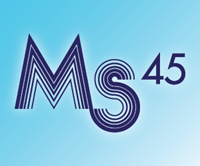By Aaron A.
[How Microsoft Changed The World - Part 1, Part 2, Part 3, Part 4 --- A full list of MS@45 content, resources and the schedule for our online experiences on the weekend of April 4-5 can be found here. Join in the celebration with us! #MSFT45]
 Microsoft turns forty-five this year.
Microsoft turns forty-five this year.
This is a big deal.
Today the company founded by the late Paul Allen and Bill Gates in 1975 employs more than 145,000 at its headquarters in Redmond, Washington, and its dozens of offices around the world. Its products are used by countless millions. Over the years the company has ushered two generations into the computer age—and with massive investments in education—is working to prepare a third. Microsoft has had both successes and failures. It has had very high points (and extremely low ones). The company has been praised and vilified. It has crushed competitors, but also, thanks to the extraordinary philanthropic efforts of the company, its founders and alumni, improved the lives of millions with direct contributions to global health, education, wildlife conservation, and the arts.
As I said, Microsoft is a big deal.
The rise (and rise) of Microsoft can be marked by the products it created. MS-DOS; Word, Excel and Office; Windows; Internet Explorer; Xbox; and Surface, string together, creating a free-verse poem for the digital age. Even its failures, like Zune, hinted at futures filled with streaming services, even if the music player/service’s 2006 release in a market dominated by iPod meant its ultimate demise was almost a foregone conclusion.
But a company’s contributions can be measured in more than just the products it makes. Its customers—the people who adopt those products, who take these tools to create, to explore, and to connect—are also important. In America, a car has always been far more than a means of getting from here to there; the same can be said for computers. For some, Microsoft BASIC provided entry into computer programming. For others, Xbox gave access to imaginative new worlds, or (as with Minecraft) tools to build one anew. Even practical applications like Word hold within them a certain power to create, be it resumes and business correspondence, or the next great American novel. (I must confess to being particularly fond of Word, despite my continued gripes about the 2010 release messing with the user interface—MICROSOFT!!!!).
Even if you consider yourself more Mac (or Linux) than PC, Microsoft has helped shaped your choices. Even if you embrace Open Office over Microsoft’s near-universal equivalent, the comforting thought of “it works just like Word” serves only to convey Microsoft’s importance.
A more important question to ask, I think, is what Microsoft might mean to us—and to our culture. Microsoft’s contributions to our digital age are immense and with the company’s continued investment in areas like quantum computing, its contributions will likely continue into the foreseeable future.
Anniversaries are more than a chance to mark the passage of time. They provide an opportunity for reflection. In keeping with this reflective theme, I would like to outline three ways why Microsoft matters. In the coming days, we’ll outline Microsoft’s profound impact on software, the computer industry and the city of Seattle.